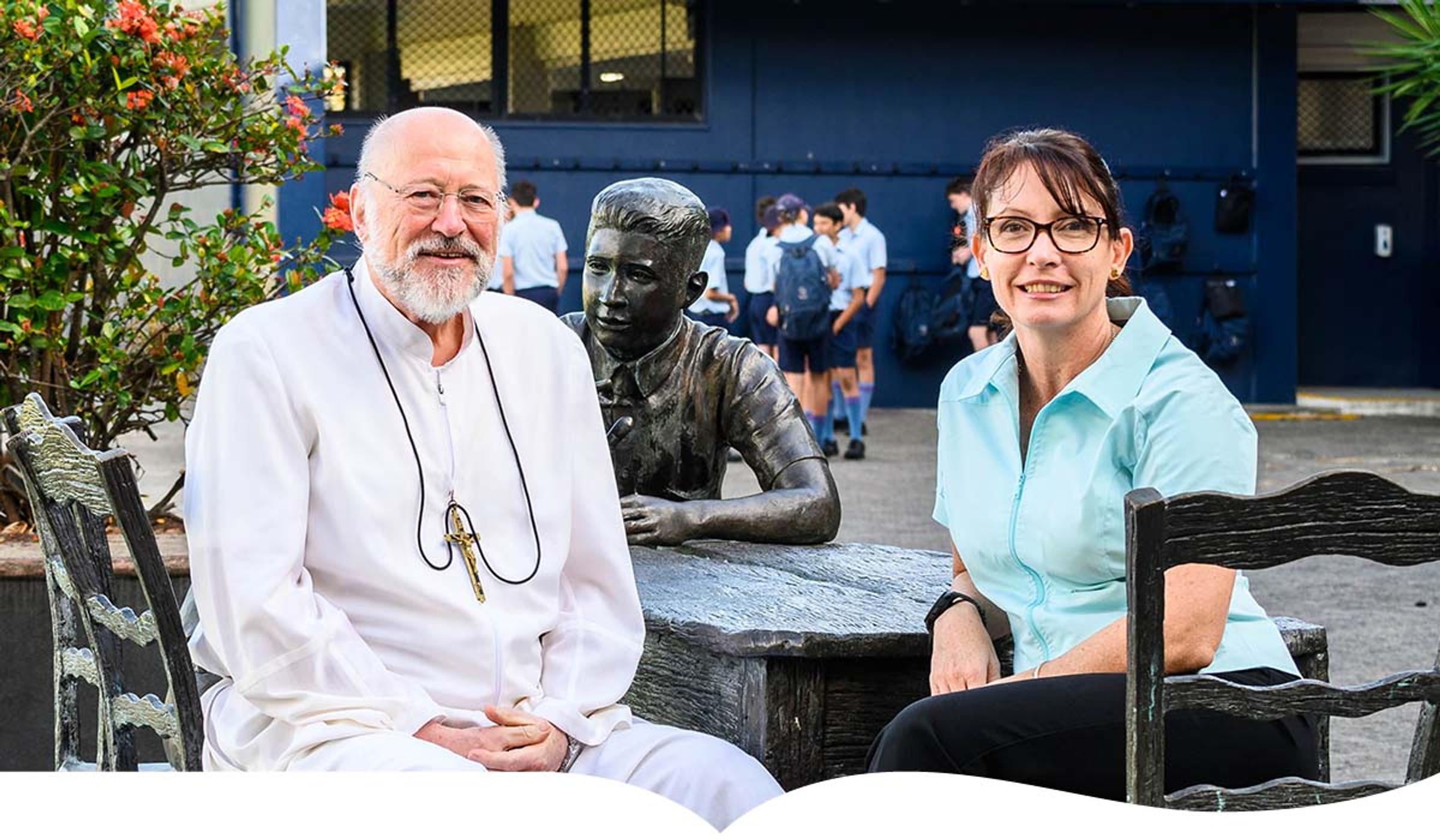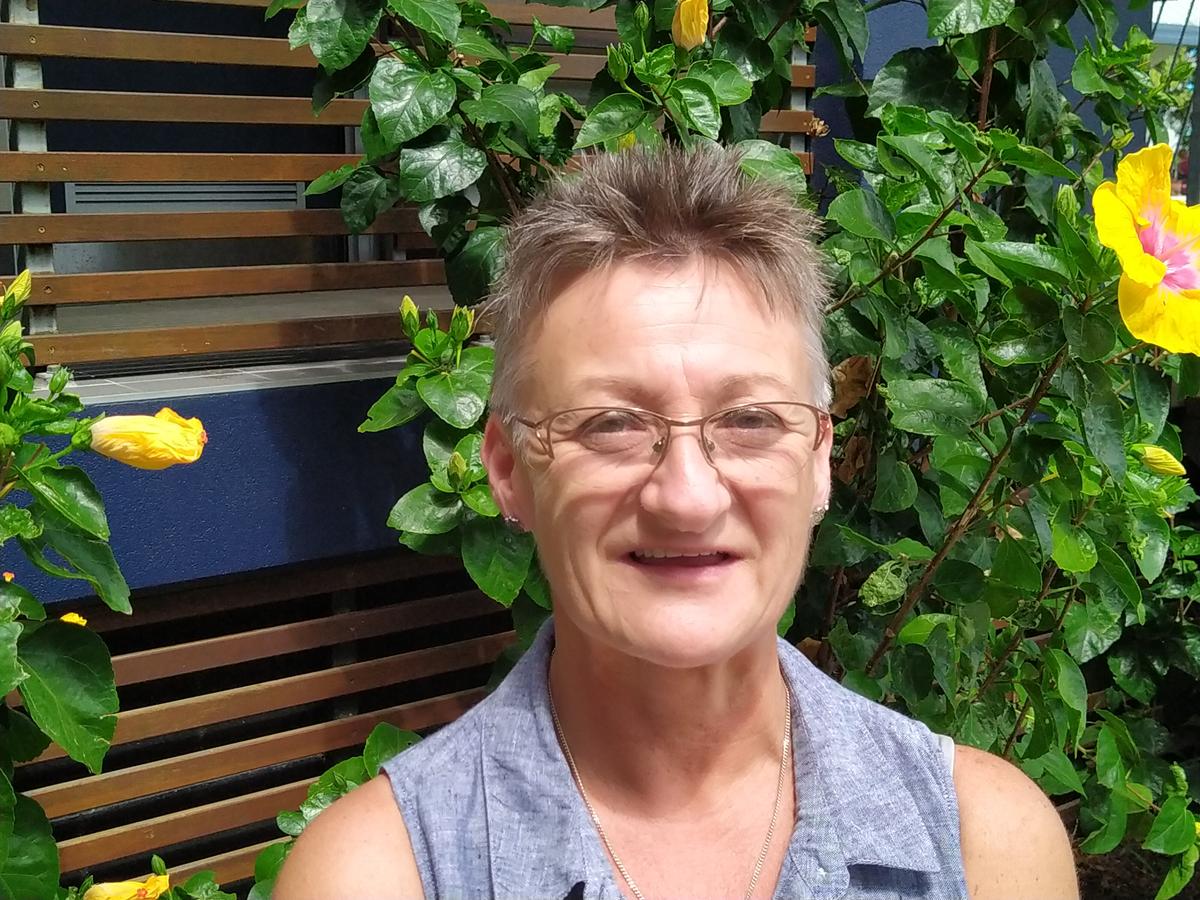COUNSELLING CONNECTIONS
News from college counsellors Br Roger Vallance FMS &
Mrs Marijke Keller

COUNSELLING CONNECTIONS
News from college counsellors Br Roger Vallance FMS &
Mrs Marijke Keller
Children and young people experience a mix of emotions when it comes to going to school.
Easing back after the holidays can range from feeling really excited and eager to concern, fear or anxiety. Getting butterflies or general worry about going back to school is common.
The main concerns for teens are coping with stress (44.7%), school or study problems (34.3%) and mental health (33.2%).
Not thinking about school until it's time to go back is one way to enjoy the last week of holidays. But for some, this can make going back to school more difficult.
Supporting parents, children and young people with back-to-school challenges can help reduce negative school experiences using the steps below.
1. Set up a back-to-school routine
Create structure about going back with a school routine. Be guided by your knowledge and history of what best supports your child during times of change and transition.
The first week back can cause disruption from being in holiday mode so don’t forget:
In some way, parents and carers go back to school with their children. Consider adjusting your own schedule to make the transition smoother. If you can’t in the mornings, arrange the evenings so you can give as much time as your child needs.
2. Talk about going back to school
Most children deal with some level of stress or anxiety about school. They have insight into their school experiences, so find out what worries them by asking directly.
You can offer support by normalising experiences of worry and nerves. Reassure your child the feelings they have are common and they will likely overcome them once they have settled in. Worries and courage can exist together.
Depending on your child’s age, you can also try the following to help:
3. Help create a sense of school belonging
A sense of belonging at school can affect academic success and student wellbeing. Parents can facilitate positive attitudes about school by setting an encouraging tone when talking about it.
Also show an interest in school life and work, and be available to support your child academically and socially.
More than half of the parents in one survey said homework and schoolwork were the greatest drivers of stress in their children. When parents are more engaged in their child’s schoolwork, they are better able to support them through it.
4. Look out for signs of stress
Research suggests parents can miss stress or anxiety in their children. Parents can spot stress if their child (depending on age):
If these behaviours persist for about half a term, talk to your child's homeroom teacher, head of year teacher or school counsellors about what is happening. Together work on a strategy of support. There may be something more going on than usual school nerves.
5. Encourage questions
Encourage questions children and teens may have about the next term. What will be the same? What will be different?
Often schools provide transition information. If the school hasn’t, it might be worth contacting them to see if they can share any resources.
Most importantly, let your child know nothing is off-limits to talk about. Set up times to chat throughout the term – it can help with back-to-school nerves.
Following these steps will help you to quickly and effectively re-establish school mode. If you would like additional support of advice, please contact our counselling team on sac.counsellors@cns.catholic.edu.au or 4052 9111.
Source: theconversation.com


To us she is Sister or Nurse, but to our boarders she is much, much more. Suzana joined the College at the beginning of 2020...just in time to manage our Covid response.
Nurses are often carers or givers of themselves and Suzana is no different. She counts all her boarding patients as “my boys or girls” and has difficulty letting them go at the end of Year 12.
She is a dedicated professional who takes pride in delivering the best care and advice to her patients. She conducts her service with precision, focus and dedication which her patients have come to rely on and expect here at Saints. She takes the time to get to know her patients, teaches them how to interact with health care staff, “Talk to me, what’s going on?” she'll say. Her connection with our students is consistent and demonstrated by the numbers congregating in her office each morning…and it’s not just because she has a steady supply of Chuppa Chups.
Suzana is a smiling presence in the Health & Wellbeing Centre team, often heard humming to herself as she carries out her tasks. She waits patiently for the possibility of a bloody patient which ignites sparks in her eyes and springs into action with a glee that’s slightly unnerving. She is always the calm one in a mob of panic surrounding a student on the ground. When not in the centre, you can find her in her garden, up to her elbows in orchids, potting mix, digging a pond or carting rocks or enjoying the peace of Kuranda with a good book.
And, from Suzana:
Dear parents, farewell and thank you for entrusting me with the care of your children here at Saints. Your support of the H&WC has been appreciated and I am truly grateful for the memories I take with me. Kindest regards,
Suzana Borlovan


We welcome our 2024 Delta therapy dog team Michelle Caunt and Lucy Lou. The team, assisted by one of our counselling team, will accompany Ms Caunt and Lucy around the College before school on Mondays. Our experience and several empirical research findings support the strong helpfulness of canine visits and we observe how much our students, especially the younger one, enjoy a meeting before school which can reduce anxieties and other pre-school nerves.
Should any parent or carer have concerns about our Delta Dog visits, please contact Br Roger.
Some families are now confronting the first steps of adolescent school refusal. There is help at hand! Consider these steps:


In these first weeks of a new school year, especially at school transitions like moving to secondary school, parents can be challenged by a type of parent burnout. The article below, Parental Burnout, is a good guide to navigating such a challenge.


The government has made several positive moves over the Christmas holidays. These include:
At the same time, we know that the advertising against adolescent vaping is struggling to reach adolescent thinking. An ABC report on 22 January titled Vaping is still on the rise despite ads targeting young Australians. Why isn't the messaging working? Read this report online. What can parents do to better protect our young people?
Counsellor Contacts
Ms Marijke Keller 07 4052 9136 mkeller@cns.catholic.edu.au
Br Roger Vallance 07 4052 9135 brroger@cns.catholic.edu.au
To contact both counsellors please use: sac.counsellor@cns.catholic.edu.au